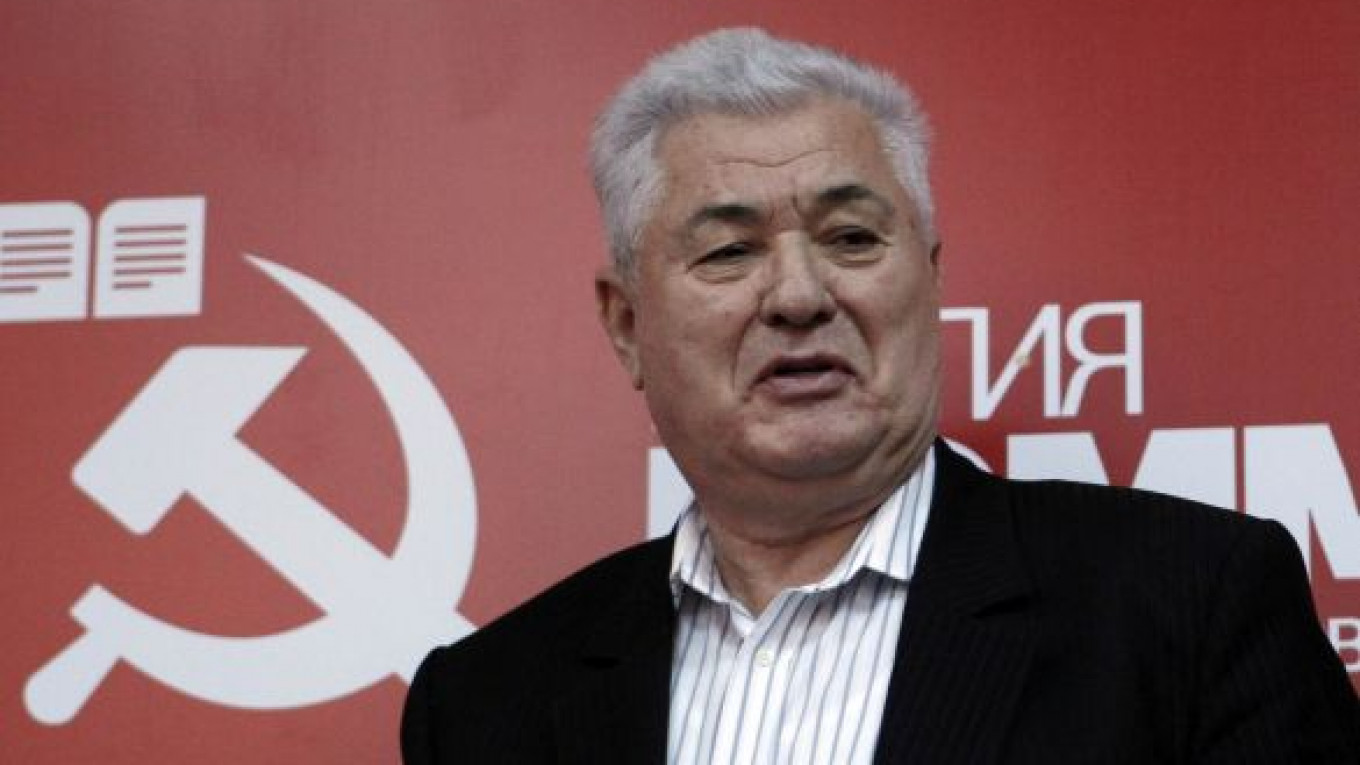CHISINAU, Moldova — Difficult backroom bargaining lay in store for Moldova's politicians on Monday, after a pro-West Alliance led opposition Communists in an election but fell short of the majority needed to break a political stalemate.
With nearly 95 percent of votes counted, three parties of Prime Minister Vlad Filat's ruling Alliance for European Integration were set to secure 57 seats and the Communists 44, independent web site Alegeri said.
Election of a full-time president, which in Moldova is by parliament and not by a national vote, is seen as vital for pushing forward with reform in the tiny former Soviet republic — one of Europe's poorest states.
Communist leader Vladimir Voronin alleged fraud by the Alliance. "By the most modest calculations, they stole a minimum of 10 percent of the vote," he told a news conference.
But an international observer mission gave its blessing, saying the poll had met most requirements of the Organization for Security and Cooperation in Europe and Council of Europe.
"The elections were administered in a transparent and impartial manner by the Central Election Commission, which enjoyed the trust of most of the contenders," the OSCE observer mission said.
The pro-Europe coalition still remained a handful of seats short of the 61 required for it to push through its choice of president, sparking fevered speculation over possible coalition deals, even including the Communists.
Moldovans faced a choice of staying with the pro-Europe course of their liberal rulers or backing closer ties with Russia by voting for the Communists who lost power in July 2009.
Russia and EU member Romania have long vied for influence in the small state of 4.1 million people. Moldova is situated between Romania, with which it shares a language, and Ukraine.
Romania and other EU states largely back the Alliance's reform path. But Russia may be hoping for the emergence of a center-left coalition to end a decline in relations since the Alliance came to power.
A Communist victory in an election in April 2009 led to big street protests in Chisinau, in which young people ransacked the president's office and parliament building. The Communists lost to the Alliance parties in a snap election in July that year.
The main winner of Sunday's vote was Filat, a 41-year-old businessmen, whose party increased its number of seats from 18 to 31, placing him firmly at the helm of the Alliance.
The three Alliance partners — Filat's Liberal Democratic Party, the Democratic Party and the Liberal Party of acting President Mihai Ghimpu — were now set for new coalition-building talks to find a way forward.
If the Alliance holds together, it will focus on seeking possible opposition defectors to secure the magic 61 votes.
Marian Lupu, the charismatic left-of-center head of the Democratic Party who was the Alliance's candidate for president, was another crucial figure.
A former Communist, he has often been uneasy over some of the policies of the Alliance and particularly the hard anti-Russian line taken by fellow Alliance member Ghimpu.
Some commentators did not exclude that he may try to strike a deal with the Communists to build a center-left coalition, though he is on bad personal terms with Voronin, a former president.
"I would say it is 50-50 as to whether we end up with a center-right coalition or a center-left coalition," said independent analyst Bogdan Tirdea. "In both these possible coalitions, Lupu is for me a key figure."
The country, whose main exports are wine and foodstuffs, is burdened by rampant corruption, a politicized judiciary and police, and a mass media that kowtows to whomever is in power.
Poor prospects — with an average salary of about $240 a month — are driving more and more young Moldovans to work abroad, depriving the country of skilled labor and leaving behind an aging population.
Despite the difficult state of the economy, the coalition has sought in the past 15 months to pursue an association agreement with the European Union and nudge the country closer to the European mainstream.
The powerful Communists twice blocked the Alliance's candidate for president last year and in September frustrated attempts to switch to electing the president by a national vote.
A Message from The Moscow Times:
Dear readers,
We are facing unprecedented challenges. Russia's Prosecutor General's Office has designated The Moscow Times as an "undesirable" organization, criminalizing our work and putting our staff at risk of prosecution. This follows our earlier unjust labeling as a "foreign agent."
These actions are direct attempts to silence independent journalism in Russia. The authorities claim our work "discredits the decisions of the Russian leadership." We see things differently: we strive to provide accurate, unbiased reporting on Russia.
We, the journalists of The Moscow Times, refuse to be silenced. But to continue our work, we need your help.
Your support, no matter how small, makes a world of difference. If you can, please support us monthly starting from just $2. It's quick to set up, and every contribution makes a significant impact.
By supporting The Moscow Times, you're defending open, independent journalism in the face of repression. Thank you for standing with us.
Remind me later.






